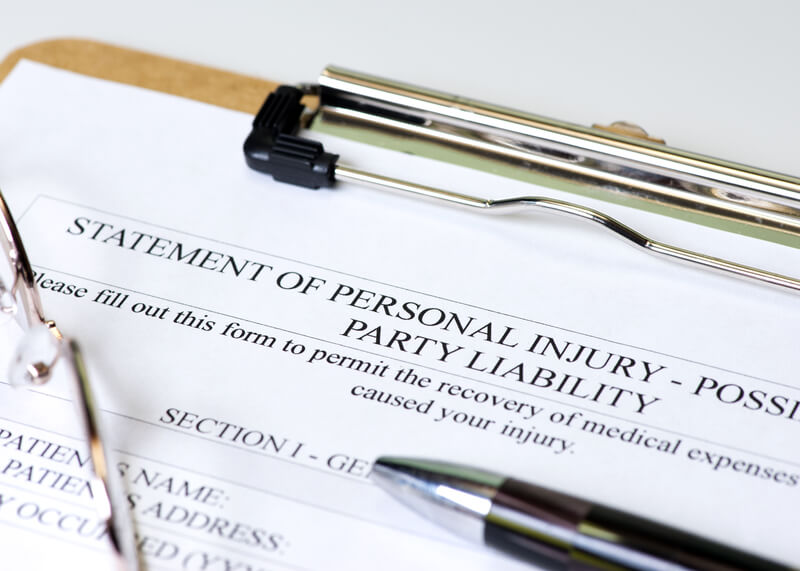When it comes to your family, any injury is serious. But catastrophic injuries redefine life. They wholly change the way someone moves through the world—affecting the work they can do, their hobbies, their relationships and their perception of self.
Types of catastrophic injuries include any severe injury to the brain or spine, as well as serious injuries such as severe burns, brain damage, amputations or organ damage that may cause permanent disfigurement. In addition to complex initial care, catastrophic injuries often require an extensive rehabilitation process, mental healthcare, and physical and occupational therapy. Sometimes those injured need changes to their homes, adaptive vehicles or full-time nursing care.
But while any catastrophic injury requires intricate, ongoing treatment, spinal injuries pose unique challenges. Families facing the paralysis of a loved one not only need outstanding medical care and community support but also the financial security to maintain a lifetime of care. Insurance companies know this, too, and they usually fight hard to limit their responsibility.
When considering a catastrophic injury claim, it is important to find a catastrophic injury attorney who understands the resources it takes to fund multidisciplinary, coordinated care, as well as the legal complexities of high-stakes paralysis cases that may result in financial compensation.
Understanding paralyzing injuries
Our bodies are incredibly resilient, working quickly to repair and rebuild bone and tissue after injuries. But there are limits, and the central nervous system—the brain and spinal cord—cannot fully heal from extreme trauma.
The spinal cord extends from the base of the brain to near the waist and is surrounded by vertebrae. These stacked bones allow us to stand upright and move with flexibility, but they also protect the spinal cord. When they’re broken or crushed, the delicate column of nerves inside can be damaged.
The spinal cord is key to almost all of our movements and sensations. Nerve groups called motor tracts send out instructions from the brain, telling us to kick our legs in the pool or go up on tiptoe to reach a shelf. Sensory tracts bring information back from our limbs and torso, letting us know our hands are cold, our waistband is pinching or our foot is falling asleep.
Serious trauma can stop that flow of information. The impact of a car accident or truck accident, for example, might lead to a broken back, neck injury or even a traumatic brain injury (TBI). A severe fall or a sports accident can do the same. Gunshots or knife wounds may sever the spinal cord. All of which can be expected to result in immediate medical treatment and high medical bills.
According to the Mayo Clinic, spinal cord injuries can be classified as:
- Complete: All function and sensation below the injury are lost.
- Incomplete: Some sensation or motor function remains below the injury.
The point where the injury occurs also determines future function and sensation. If the injury results in paralysis, it is either:
- Tetraplegia: affecting the entire body from the neck down, including the arms, torso, pelvic organs and legs
- Paraplegia: affecting the lower body, including the legs, pelvic organs and part of the trunk
What happens after a spinal injury?
While some spinal injuries are immediately apparent, others worsen over days or even weeks. To achieve the most successful outcome, doctors need to stabilize a spinal injury as soon as possible, and they must control inflammation, bleeding and swelling to prevent further damage.
Because so much hinges on prompt treatment, it’s critical that anyone suspected of having a spinal injury gets medical help immediately. If you’re with someone who has experienced severe head, neck or back trauma:
- Call 911
- Don’t move the person
- Attempt to keep the injured person still and calm, stabilizing the head with towels to the side
While we tend to assume paralysis, including paralysis of all four limbs, is immediate, that’s not always the case. Signs of a spinal cord injury may come on over time. According to Healthline, symptoms to watch for include:
- Loss of movement
- Difficulty walking
- Loss of control of the bladder or bowels
- Spreading numbness
- Headaches
- Unconsciousness
- Pain or stiffness in the back or neck
What kind of care do spinal injuries require?
Spinal injuries are among the most traumatic injuries people can suffer. Aside from the immediate and secondary physical health needs, paralysis requires mental healthcare, rehabilitation, therapy and environmental adaptations.
Doctors continue to make amazing advancements in spinal injury treatment. Initial care usually centers on diagnosing a spinal injury, protecting the patient’s ability to breathe and avoiding further damage through immobilization. Doctors may then perform surgery, stabilize the spine through traction or administer steroids.
Next comes rehabilitation. Here in Georgia, patients enter spinal cord injury programs, like those at Atlanta’s Shepherd Center, where they receive physical and occupational therapy, practice using new adaptive devices and learn ways to avoid infections.
Often, patients in rehab will learn about:
- Bladder control and bowel control: Paralyzing injuries come with a high risk for UTIs and kidney infections. Providers can teach patients how to minimize the risk and maintain a healthy diet.
- Pressure injures: With patients sometimes unable to move or feel pressure points, redness and sores easily develop. Patients and their caregivers can learn preventative approaches to wound care.
- Respiratory challenges: When abdominal and chest muscles are affected by paralysis, patients may struggle to take a deep breath or cough. Rehabilitation teaches strategies to avoid congestion and respiratory infections.
- Fitness and muscle tone: Limited movement can lead to the loss of muscle tone and cause weight gain. Therapists may work with patients to come up with an exercise routine adapted to their abilities.
- Sexual changes: Physical and mental healthcare providers can help address questions related to intimacy and fertility.
- Mental health needs: Patients often require ongoing support managing depression or anxiety.
After inpatient rehab, some patients may continue in day rehab, pursuing goals to increase their independence and setting new challenges.
Spinal injuries involving paralysis also require lifelong care as they are sometimes permanent disabilities. This may include nursing support, adaptive devices, continued mental healthcare and treatment for related conditions and complications like pneumonia or heart disease.
Legal considerations and how a paralysis injury attorney can help
Families sometimes feel overwhelmed by the medical care required for any spinal injury. Pursuing a lawsuit against the responsible party may feel like too much, especially when the insurance company is already making a settlement offer.
But when there’s negligence involved, it takes an Atlanta paralysis injury lawyer to prepare for the case’s complexities and secure the best outcome possible.
Paralyzing injuries may result from:
- A car crash
- A motorcycle crash
- An accident or violent incident on a property (premises liability)
- A faulty or dangerous product (product liability)
- Medical malpractice
- A slip and fall
When considering a personal injury lawsuit, it is important to remember that personal injury cases require showing that an accident occurred and that the accident was someone else’s fault. Paralysis lawyers must demonstrate the extent of the injuries—clearly defining the life changes that will occur. They also have to prove that someone else’s negligence caused the accident. To do this, it helps to have:
- Medical records
- Accident reports
- Witness accounts
- Photos of the accident scene
From there, personal injury law firms calculate compensation. This is where it’s critical to have a legal team who understands catastrophic injuries and the lifetime of care they require. You can’t afford to have a lawyer underestimate the cost of care you’ll need over the years. Compensation will include medical expenses (both past and future), lost wages, expected costs related to home modifications or other adaptations, and pain and suffering.
What is pain and suffering?
Deciding how someone’s pain and suffering should be compensated is a complex process. It’s not a tally of bills or even a forecast of future care. It attempts to place a financial value on the intangible: the mental pain of knowing you can’t pick up your child again or run with your dog or do the work you once did.
While it’s often difficult to demonstrate pain and suffering, paralysis is more clearly understood than some injuries. Most people, including those serving on juries, accept that the anguish and pain caused by paralysis is not exaggerated. However, personal documentation, witness testimony and medical records help support any case.
Insurance companies, knowing how financially strained families may be, sometimes offer low-ball settlements. But paying for the immediate bills does not cover lifelong care, lost earning potential and quality of life changes. Accepting a settlement cuts off future litigation. Insurance companies may also deny fault or use low policy limits to avoid fair compensation. These cases often require extensive litigation in order to evidence the extent of damages that a person has suffered and will continue to suffer in the future.
Here at Litner + Deganian, catastrophic injuries are some of the most challenging cases we handle as personal injury attorneys, and not just because of their legal complexities. Simply put: These cases are hard. For everyone. But with those challenges comes experience—we understand treatment options, insurance company weak points and how to advocate for our clients through maximum compensation that cover future needs. We fight for our most vulnerable clients.
We also serve with empathy. This is likely the hardest time in your family’s life. We want to serve as the best catastrophic injury lawyer imaginable and make sure that finances and legal complications aren’t things you have to worry about.
When you need a catastrophic injury attorney, contact Litner + Deganian
If you’ve experienced a catastrophic injury, or if you’re supporting a family member who has, you may have a catastrophic injury case – give us a call to talk through your options in a free consultation at our law firm.












